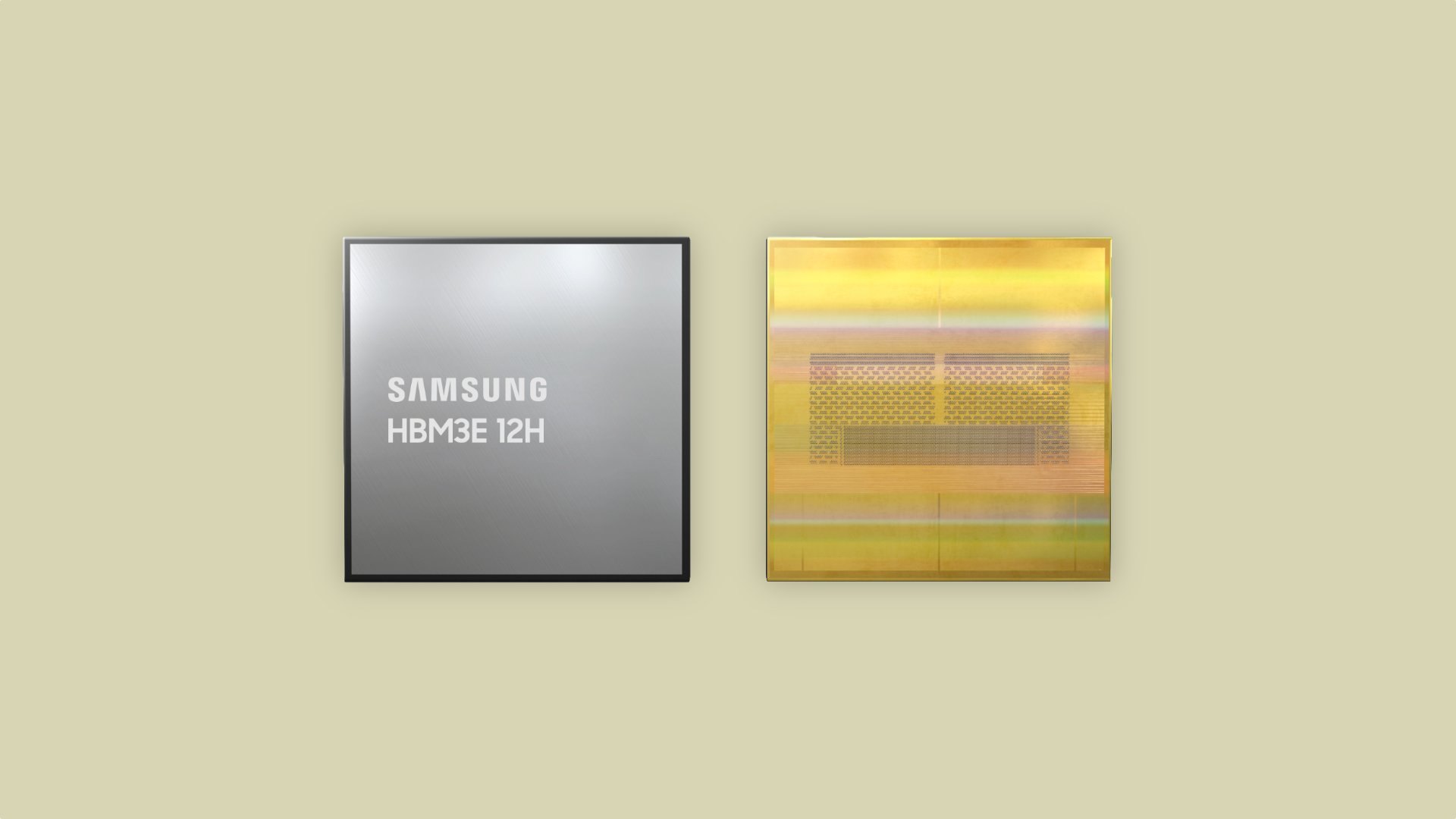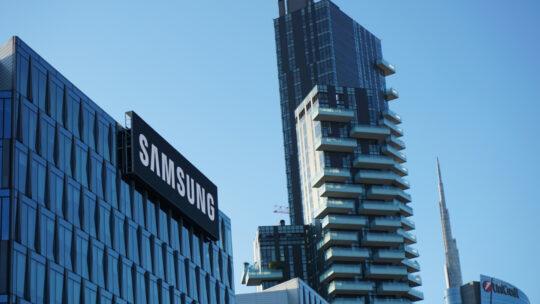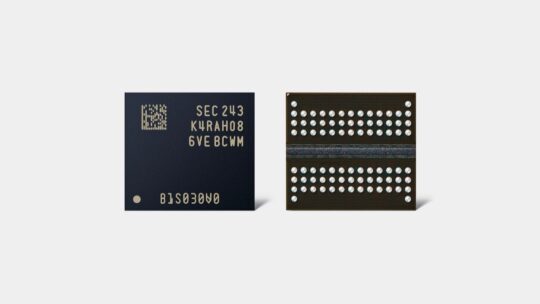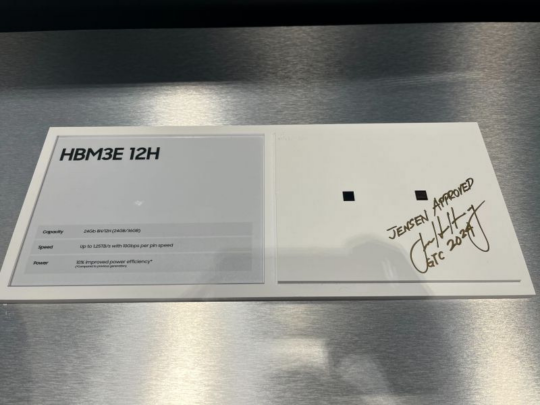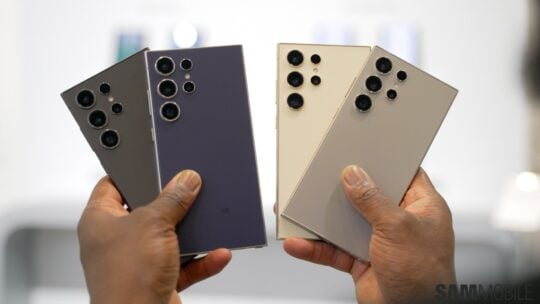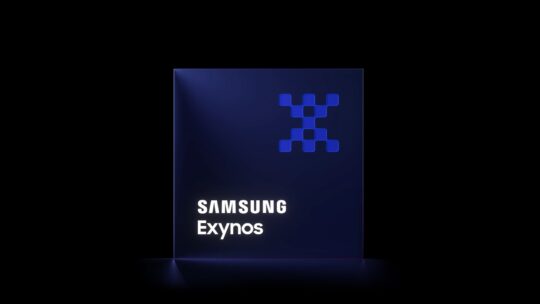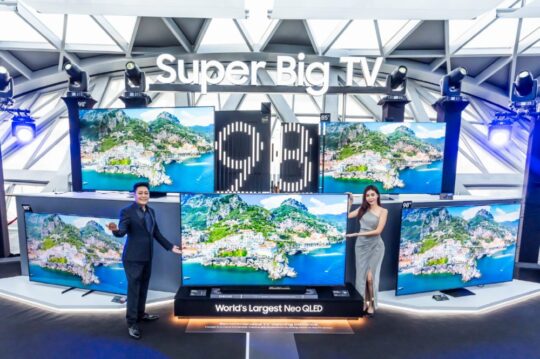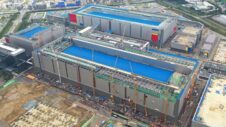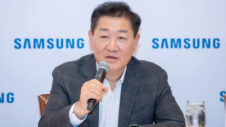After announcing its revenue estimates earlier this month, Samsung has announced its financial results for the second quarter of this year. The South Korean firm reported a 23.42% rise in revenue and a meteoric rise of 1,458% in operating profit in Q2 2024 compared to last year. These better-than-expected numbers are due to the rise in memory chip prices amid the ongoing AI boom.Summarize in one-click with Galaxy AI
Samsung Q2 2024 profit was better than expected
Samsung revealed its final financial figures for Q2 2024. The company's revenue was KRW 74.07 trillion (~$53.5 billion), which is 23.42% higher compared to Q2 2023. Its operating profit during the second quarter was KRW 10.44 trillion (~$7.5 billion), which is 1,458% higher than last year.
These numbers are higher than analysts' estimates. The South Korean firm revealed that its great numbers are due to improved memory chip (HBM and DRAM) sales and profitability. It also said its display panel business (Samsung Display) is doing well due to OLED panel sales. The company invested KRW 8.05 trillion (~$5.83 billion) in research and development for future growth.
OLED, HBM, and SSD sales helped Samsung achieve impressive revenue
This is the first profit the South Korean firm's chip business (Samsung Device Solutions) has seen in over a year. Its Device Solutions business saw sales of KRW 28.56 trillion (~$20.7 billion) and an operating profit of KRW 6.45 trillion (~$4.67 billion).
Samsung expects memory chip (HBM and high-capacity SSD) sales to remain strong for the rest of the year. It is expanding the production of HBM and server DRAM chips, which might affect the production of its conventional DRAM chips.
Its HBM3 chips recently received Nvidia's certification for China-bound AI chips, and reports indicate that its HBM3E chips could get certified by Nvidia by November 2024. So, the outlook for the company's HBM chips remains strong. The company is already working on HBM4 chips that might be ready by 2026.
Demand for memory chips in the PC market was relatively weak, while demand in the smartphone market remained strong. Chinese smartphone brands bought a lot of memory chips from Samsung. The company launched a 128GB DDR5 DRAM chip for the first time.
The company will continue to focus on the supply of triple-level cell (TLC) SSDs. It will address customer demand for quad-level cell (QLC) storage chips for all types of segments, including smartphones and PCs.
Samsung's Foundry business remained strong
The South Korean firm confirmed that its foundry business (Samsung Foundry) saw improved earnings on the back of strong demand for sub-5nm chips. Its AI and high-performance computing (HPC) customers doubled compared to last year.
It confirmed that it has already sent its 2nm GAA process development kit (PDK) to customers, and it expects the mass production of 2nm chips to start in 2025. The company expects to outgrow the foundry market with the help of mass production of 3nm chips in the second half of this year.
Samsung hopes to increase its foundry customers by 4x and sales by 9x by 2028 compared to 2023 numbers.
Smartphone sales dipped slightly during Q4 2024, but Galaxy S24 sales remain strong
Samsung's smartphone sales declined slightly in Q2 2024, which is usual for the company. The company launches its flagship phones in the first quarter of each year and usually sees higher sales during that quarter. In the second quarter, sales are lower as there are no major launches that people look forward to. However, Samsung says that sales of the Galaxy S24 series remain strong.
During the second quarter, the mobile division (Samsung MX) posted revenue of KRW 27.38 trillion (~$19.8 billion) and KRW 2.23 trillion (~$1.62 billion). Samsung confirmed that Galaxy S24 sales were higher than the Galaxy S23 series in the double-digit range.
Overall, smartphone sales are expected to be slightly higher this year. Sales of ecosystem products, including smartwatches, tablets, and wireless earbuds, are expected to rise. The company expects smartphone sales to grow slightly in Q3 2024 and tablet sales to remain consistent.
The company launched two new high-end phones, the Galaxy Z Flip 6 and the Galaxy Z Fold 6, earlier this month. Both phones have Galaxy AI features, and you can watch them in our video below.
Samsung confirms 3nm Exynos 2500 for Galaxy S25
Samsung also revealed that its System LSI business arm is focusing on its business capabilities to ensure a stable supply of the Exynos 2500 chip for “flagship products.” This is the first time Samsung has confirmed the Exynos 2500's existence, and it is expected to be used in Galaxy S25 smartphones.
It said the response to its first 3nm chip, the Exynos W1000, has been positive. The chip is used in the Galaxy Watch 7 and the Galaxy Watch Ultra. So, the company hopes it won't face any issues with the Exynos 2500, which could be announced in Q4 2024 or Q1 2025. The Galaxy S25 series will likely go official in January 2025.
The company confirmed its System LSI business achieved record-high sales with the help of strong sales of Exynos chips, ISOCELL camera sensors, and display driver ICs (DDIs). The company plans to focus on expanding its 200MP ISOCELL camera lineup by launching models that could also be used for telephoto cameras on smartphones.
Display panel business expects huge revenue later this year, thanks to iPhone 16 launch
Samsung Display, Samsung Electronics' display development and manufacturing arm, posted a revenue of KRW 7.65 trillion (~$5.54 billion) and an operating profit of KRW 1.01 trillion (~$736 million). It said the business was great, thanks to recent flagship smartphone launches, which likely refers to the Galaxy S24 series.
It mentioned that its sales will remain strong for the rest of the year, thanks to the “release of new smartphones from major customers.” Here, the company is likely referring to the upcoming launch of the iPhone 16 series. Apple is expected to launch the iPhone 16 in September 2024, and some of those models will use OLED panels from Samsung.
Samsung is also focusing on increasing profitability by selling more OLED panels for TVs and gaming monitors.
TV and home appliances sales see a slight jump
Samsung DX, Samsung Electronics's home appliances and TV arm, posted KRW 14.42 trillion (~$10.5 billion) in revenue and KRW 0.49 trillion (~$357 million) in operating profit. TV sales increased compared to last year, thanks to the Paris 2024 Olympics.
The company focused on sales of high-end TVs, including Neo QLED TVs, OLED TVs, and lifestyle TVs like The Frame. The company says competition and component prices have increased, which decreased the profitability of its TV business. The company plans to improve profitability by improving its services business (like Samsung TV Plus).
Image Credits: Samsung
